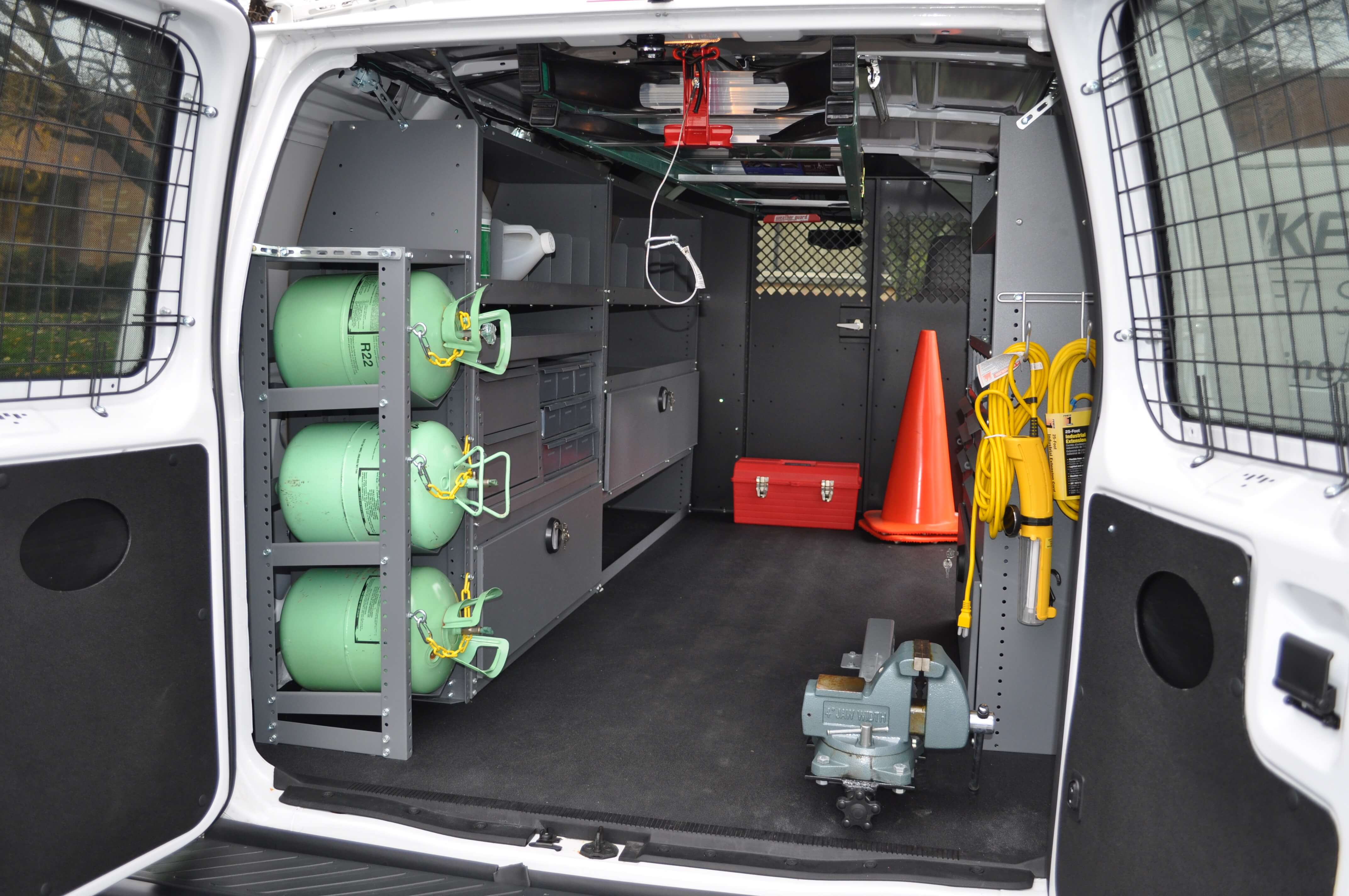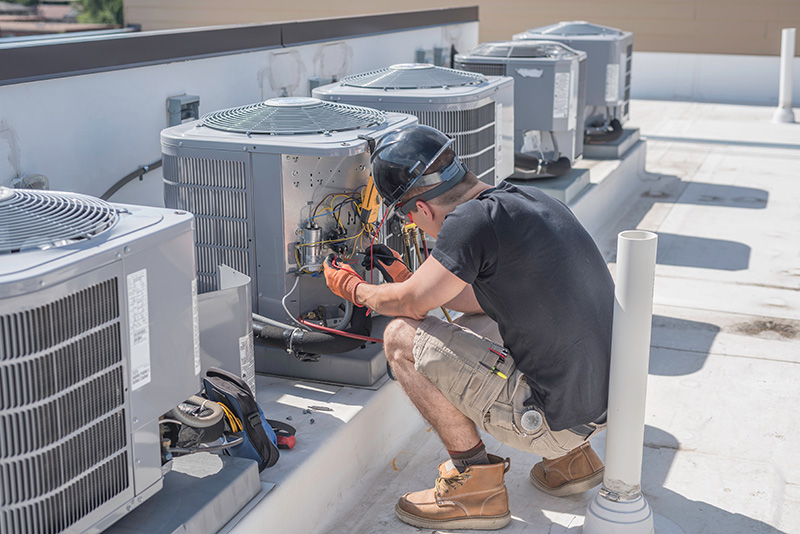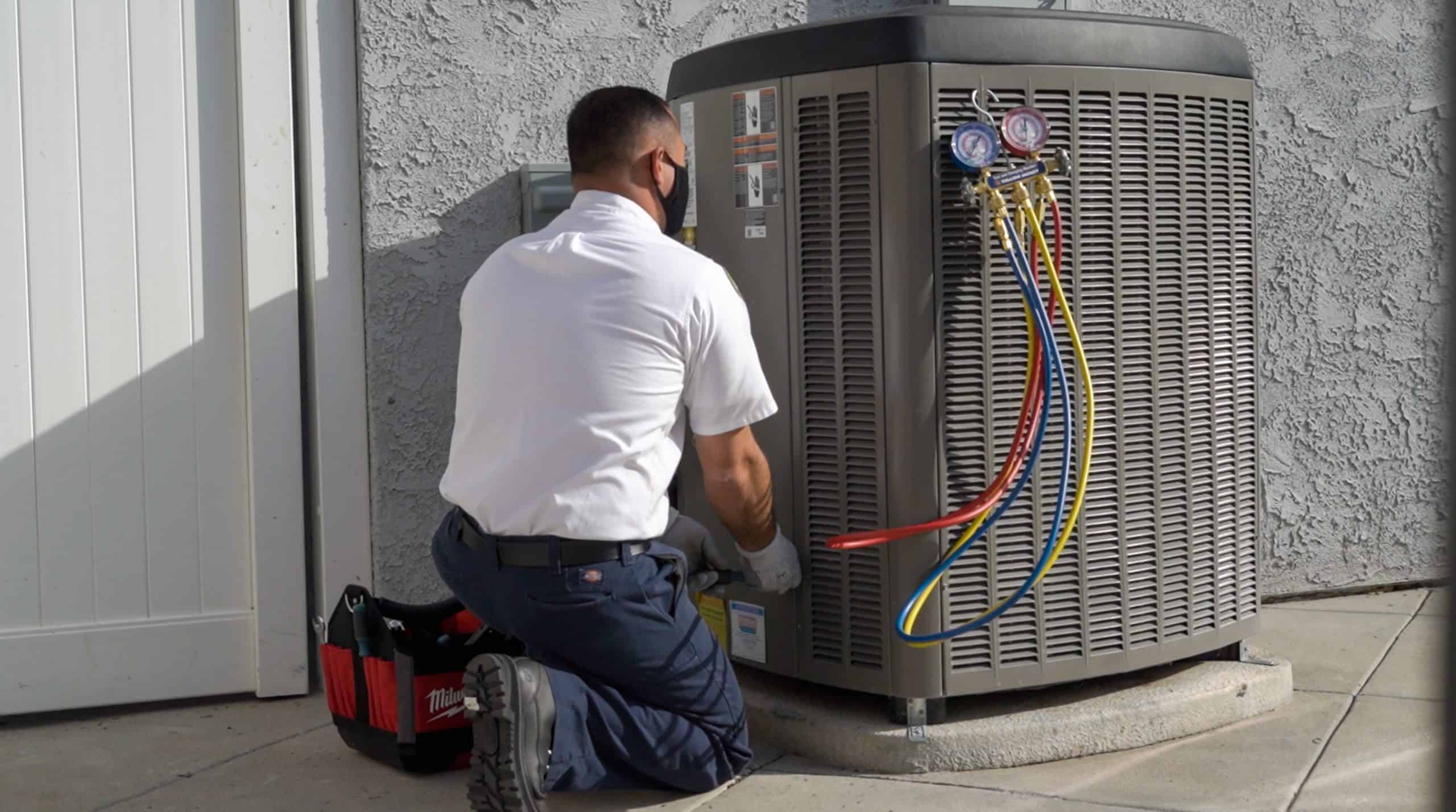Energy-Efficient Heating And Cooling Systems to Save Money On Utility Expenses
As energy costs remain to rise, the importance of energy-efficient heating and cooling systems ends up being progressively apparent. These systems not only promise substantial savings on energy costs yet likewise contribute to a more sustainable future by minimizing power intake. With various alternatives available, consisting of geothermal heatpump and ductless mini-splits, residential or commercial property owners face a multitude of choices that can boost comfort and air quality. However, recognizing the crucial features and upkeep demands is important to optimizing these benefits. What elements should be focused on when choosing the appropriate system for your requirements?
Advantages of Energy-Efficient A/c Systems
Energy-efficient A/c systems supply various benefits that prolong past plain price financial savings. By consuming less energy, these systems add to reduce greenhouse gas exhausts, aiding to combat climate change and promote sustainability.
Furthermore, energy-efficient HVAC systems typically give boosted convenience degrees. A number of these systems include innovative technology that permits better temperature level control and boosted air top quality (DMAKS HVAC). This leads to a much healthier interior setting, which is specifically vital for people with allergic reactions or respiratory system concerns
Moreover, buying energy-efficient a/c systems can improve property worth. As even more consumers prioritize power performance, homes and structures furnished with these systems may attract higher proposals in the genuine estate market.
Kinds Of Energy-Efficient Heating And Cooling Options
How can property owners and businesses pick one of the most appropriate energy-efficient a/c choices for their needs? The marketplace uses a range of energy-efficient heating and cooling systems, each designed to boost convenience while reducing power intake.
One choice is the variable refrigerant flow (VRF) system, which successfully manages the temperature level in several zones within a structure. This system adapts its refrigerant circulation to match the desired temperature level, leading to significant power savings.
An additional popular selection is geothermal heatpump, which make use of the earth's secure temperature to warmth and amazing spaces. By transferring warm to and from the ground, these systems show excellent efficiency, especially in modest climates.
In addition, ductless mini-split systems provide an energy-efficient option for homes doing not have ductwork. These systems permit zone-specific cooling and heating, minimizing power waste in vacant locations.
Lastly, high-efficiency heating systems and ac unit, with advanced SEER and AFUE scores, supply reputable environment control while consuming less power than typical models. By examining these alternatives, homeowners and services can pick a HVAC system tailored to their certain demands and power efficiency goals.
Secret Attributes to Consider

Next, check out the type of compressor used in the system. DMAKS HVAC. Variable-speed compressors can change their result to match the heating or cooling down demand, causing improved convenience and power cost savings contrasted to single-speed models. In addition, look for systems furnished with smart thermostats that use programmable setups and remote access, permitting better control over energy intake
An additional critical feature is the system's air filtration capability. High-efficiency filters can improve indoor air top quality and link lower power intake by making certain the system runs successfully. Moreover, take into consideration the kind of refrigerant utilized; contemporary systems commonly utilize green cooling agents that have a reduced environmental effect.
Finally, guarantee that the system is compatible with zoning technology, which enables customized temperature level control in various locations of your home, improving comfort while lessening power use.
Tips for Choosing the Right System


Next, consider power performance scores, particularly the Seasonal Power Performance Ratio (SEER) for cooling systems and the Yearly Fuel Usage Performance (AFUE) for heater. Higher ratings show higher efficiency, which can bring about considerable savings on energy expenses over time.
In addition, assess the type of cooling and heating system that finest suits your way of living and budget plan. Options consist of air conditioning, ductless mini-splits, and warmth pumps, each with its very own collection of advantages and drawbacks.
Do not overlook the relevance of appropriate installation and sizing; an improperly sized system can lead to inadequacies and increased wear. Seek advice from with an expert Cooling and heating specialist to get professional suggestions customized to your home's unique needs. This detailed strategy will certainly ensure that you choose helpful site an energy-efficient cooling and heating system that meets your requirements and spending plan effectively.
Maintenance for Ideal Performance
Once the best a/c system remains in place, ongoing maintenance ends up being vital to ensuring optimal efficiency and long life. A properly maintained system runs better, leading to lower energy usage and minimized energy costs. Normal examinations and tune-ups should be scheduled at least twice a year-- once before the cooling season and as soon as prior to the home heating period.

House owners ought to also be cautious regarding checking their cooling and heating system's performance. Uncommon noises, rising and fall temperatures, or raised energy expenses can indicate underlying problems that call for immediate focus. By addressing these worries promptly, home owners can protect against costly repairs and prolong the life expectancy of their systems.
Purchasing an upkeep plan with a qualified service technician company website not just enhances effectiveness yet also offers assurance, recognizing that the system is operating at its best. DMAKS HVAC. Routine upkeep is consequently important for sustaining energy effectiveness and lowering general functional prices
Conclusion
In conclusion, energy-efficient a/c systems provide a sensible remedy for reducing utility bills while enhancing comfort and air quality. By incorporating advanced technologies and options such as geothermal heatpump and ductless mini-splits, building proprietors can attain substantial power cost savings and add to environmental sustainability. Careful consideration of system features and ongoing upkeep better makes certain optimum efficiency, making energy-efficient systems a prudent investment for both economic and eco-friendly advantages.